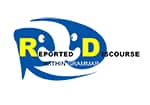|
|
|
Call for papers
REPORTED DISCOURSE WITHIN GRAMMAR : CROSS-LINGUISTIC INSIGHTS
Reported discourse, as a universal feature of human language (Haberland 1986: 219, Coulmas 1986: 2, Jakobson 2010 : 96), has been explored extensively with a diversity of approaches (see the bibliography of Buchstaller 2012: xix-xx). Yet, some recent typological studies of that phenomenon point towards the need for reshaping our understanding of the way reported discourse functions within the linguistic system (see the paper by Spronck and Nikitina 2019 and the discussion around it https://www.degruyter.com/document/doi/10.1515/lingty-2019-0005/html ).
This workshop aims at bringing together researchers working on various aspects of reported discourse in different languages. We invite contributions on methodological issues, the typology of reported discourse, and case studies based on original field data from lesser-studied languages. We particularly welcome recent work and work in progress by students and early-career researchers. The relevant topics include the following:
-
the diversity of reported discourse constructions (constructions with predicates other than speech verbs, speech-introducing noun phrases etc.; constructions without reporting segments);
-
the origins, evolution and the range of uses of quotative markers across languages;
-
the distinction — or a lack thereof — between direct and indirect speech;
-
extended uses of reported discourse : the use of reported discourse expressions to convey intention, evidentiality and other meanings;
-
logophoricity and the encoding of participants in the reported speech situation;
-
the domain of demonstration, i.e. the relation between reported discourse, gesture, and expressive elements such as interjections, onomatopoeias and ideophones.
A special panel will be organized to discuss the syntax of reported discourse, i. e. to explore the syntactic relationship between the reporting segment and the reported segment across languages and how it can be analyzed within various syntactic frameworks.
The workshop is organized by the ERC-funded project “Discourse Reporting in African Storytelling” (http://discoursereporting.huma-num.fr/index.html) and follows up on two previous workshops (http://discoursereporting.huma-num.fr/workshops.html). The workshop will take place at LACITO (https://lacito.cnrs.fr/), a CNRS lab located in Villejuif (reachable from Paris by metro), on July 5-7, 2023.
Abstracts should be at most 500 words, 12 font size Times New Roman, in PDF format in English or French. Please send your submissions via this link: https://rdwg.sciencesconf.org/submission/submit
General information about the workshop can be found here : https://rdwg.sciencesconf.org
If you have questions about the conference, feel free to send your email to : rdwg2023@gmail.com
The deadline for abstract submission is March 31 07 April, 2023.
Notification of acceptance will be sent out by April 16, 2023.
Limited financial support is available for researchers without sufficient institutional funding (please indicate the need for support by sending an email to this address : rdwg2023@gmail.com ).
Keywords: reported discourse, grammar, typology, syntax, quotative markers, onomatopoeia, ideophone, interjection, evidentiality, direct speech, indirect speech, logophoricity
References :
Buchstaller, Isabelle & Ingrid Van Alphen . 2012. Quotatives : Cross-linguistic and cross-disciplinary perspectives. John Benjamins Publishing.
Coulmas, Florian. 1986. Reported speech : Some general issues. Direct and indirect speech. 31. 1-28.
Jakobson, Roman. 2010. The fundamental and specific characteristics of human language. In Volume VII Contributions to Comparative Mythology, 93-97. De Gruyter Mouton
Haberland, Hartmut. 1986. Reported speech in Danish. Direct and indirect speech. 219-254.
Spronck, Stef & Tatiana Nikitina. 2019. Reported Speech Forms a Dedicated Syntactic Domain. Linguistic Typology 23(1). 119-159. DOI : 10.1515/lingty2019-0005.


